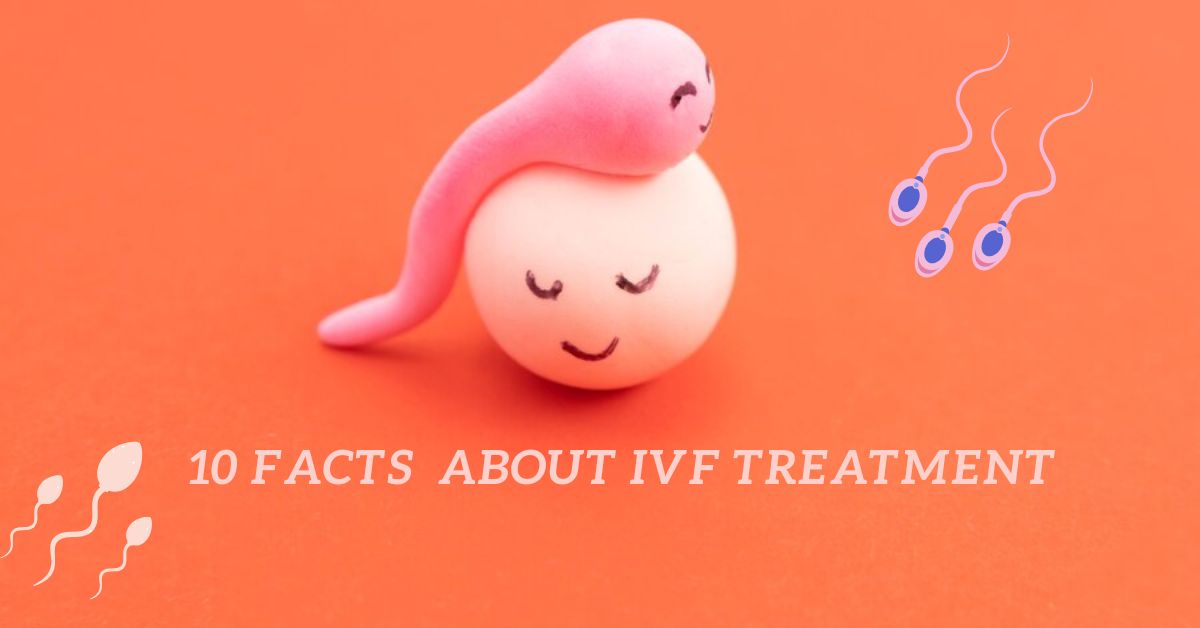10 Facts bout IVF Treatment: Guided By the Fertility Specialist
Introduction:-
In vitro fertilization (IVF) has revolutionized reproductive medicine and given hope to countless couples struggling with infertility. This advanced medical procedure involves combining eggs and sperm outside the body, offering a solution for individuals who have difficulties conceiving naturally. If you're considering IVF or simply want to learn more about it, here are 10 essential facts that will help you understand this remarkable treatment.
What is IVF?
IVF is a fertility treatment where eggs are retrieved from the woman's ovaries and fertilized with sperm in a laboratory. After fertilization, the resulting embryos are monitored for several days before being transferred to the woman's uterus, with the aim of achieving pregnancy.
IIVF is usually not the first treatment option for infertility. It is typically recommended when other, less invasive treatments have failed. These may include medication, lifestyle changes, intrauterine insemination (IUI), or surgical interventions.
Multiple embryos can be created. During an IVF cycle, multiple embryos are often created to increase the chances of success. However, this can lead to multiple pregnancies, which carry higher risks for both the mother and the babies. The number of embryos transferred is a decision made in consultation with the doctor, considering factors such as age and fertility history.
While IVF has helped many couples achieve pregnancy, success rates vary depending on various factors, including the woman's age and overall health. It's important to have realistic expectations and be prepared for the possibility of multiple IVF cycles before achieving a successful pregnancy.
Age matters:-
Age plays a crucial role in the success of IVF treatment. As women age, their fertility decreases, and the quality of their eggs declines. This can affect the success rates of IVF. Generally, younger women have higher chances of success with IVF compared to older women.
It can be emotionally challenging Undergoing IVF can be emotionally and psychologically challenging for couples. The process can be physically demanding, requiring frequent appointments, injections, and hormonal changes. The emotional rollercoaster of hope, anticipation, and disappointment can take a toll on mental well-being. Seeking support from a therapist, support groups, or loved ones can be beneficial.
IVF treatment can be expensive, and costs vary depending on factors such as location, clinic, and specific procedures required. In some cases, multiple cycles may be necessary, adding to the financial burden. It's important to explore insurance coverage, financing options, and understand the total costs involved.
Genetic testing :
Genetic testing of embryos, such as preimplantation genetic testing (PGT), may be recommended in certain situations. PGT can identify genetic abnormalities or chromosomal disorders in embryos before they are transferred to the uterus, helping to increase the chances of a successful pregnancy and reduce the risk of passing on genetic conditions.
IVF treatment can have physical side effects due to the hormonal medications used to stimulate egg production. These may include bloating, breast tenderness, mood swings, and mild pelvic discomfort. It's important to discuss potential side effects with your doctor and follow their guidance throughout the treatment process.
IVF treatment has expanded to include various options for individuals and couples facing different circumstances. This includes using donor eggs or sperm, gestational carriers, or freezing embryos for future use. These options provide hope and opportunities for individuals who may not have been able to conceive otherwise.
Egg and sperm in a specialized laboratory dish. In this process, the female partner receives hormonal injections to stimulate the production of more eggs. The growth of these eggs is regularly monitored through Follicular Monitoring using ultrasound. The dosage of injections is carefully planned to optimize the number of viable eggs.
Another technique called Intra Cytoplasmic Sperm Injection (ICSI) involves manually fertilizing the female partner's eggs with the partner's sperm to create embryos. This method is used when necessary to overcome certain fertility challenges.
Fertility Enhancing Surgeries such as Laparoscopy and Hysteroscopy are recommended for females. These surgeries can address various issues, including unblocking fallopian tubes, removing ovarian cysts in cases of polycystic ovary syndrome (PCOS), eliminating adhesions in the uterus, removing fibroids from the uterus, and draining infected fluid from the ovaries and tubes. Hysteroscopy is conducted to examine and treat uterine problems. Both Laparoscopy and Hysteroscopy are typically performed as outpatient procedures, allowing patients to be discharged on the same day. Many patients have successfully conceived naturally after undergoing these surgeries.
For male patients who are unable to ejaculate sperm due to blockages in the vessels, Testicular Sperm Extraction (TESE) is performed. A small tissue sample is taken from the testes, and sperm is retrieved from this tissue. TESE is usually followed by IVF ICSI.
Intra-Uterine Insemination (IUI) is a procedure primarily conducted on patients with no identifiable female factor infertility. During IUI Treatment In Sri Lanka , sperm from the male partner is injected into the uterus of the female partner using a thin tube.
Conclusion:
In vitro fertilization has transformed the lives of countless individuals and brought happiness to families around the world. By understanding these 10 essential facts about IVF treatment, you can make informed decisions and navigate the journey more confidently. Remember, consulting with a qualified fertility specialist is crucial to tailor the treatment to your specific needs and increase your chances of success.



